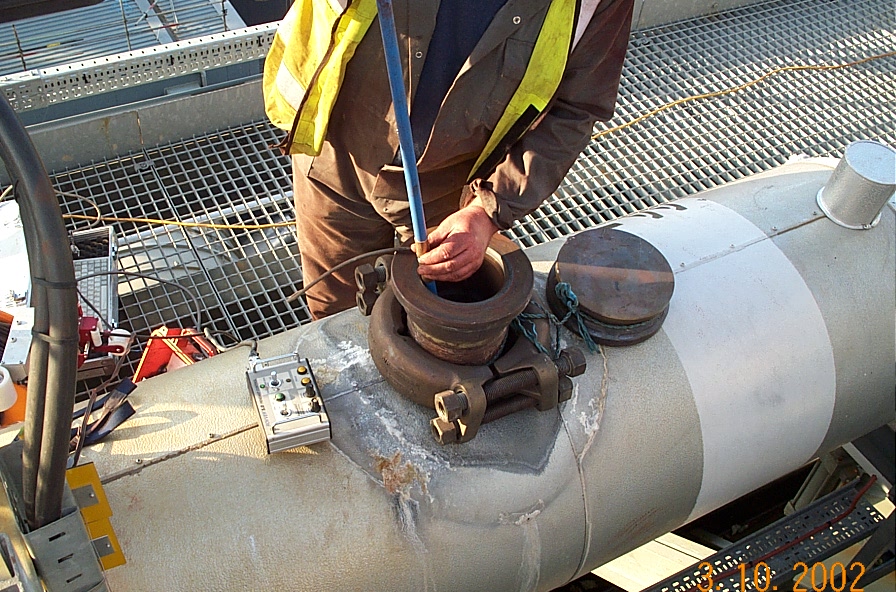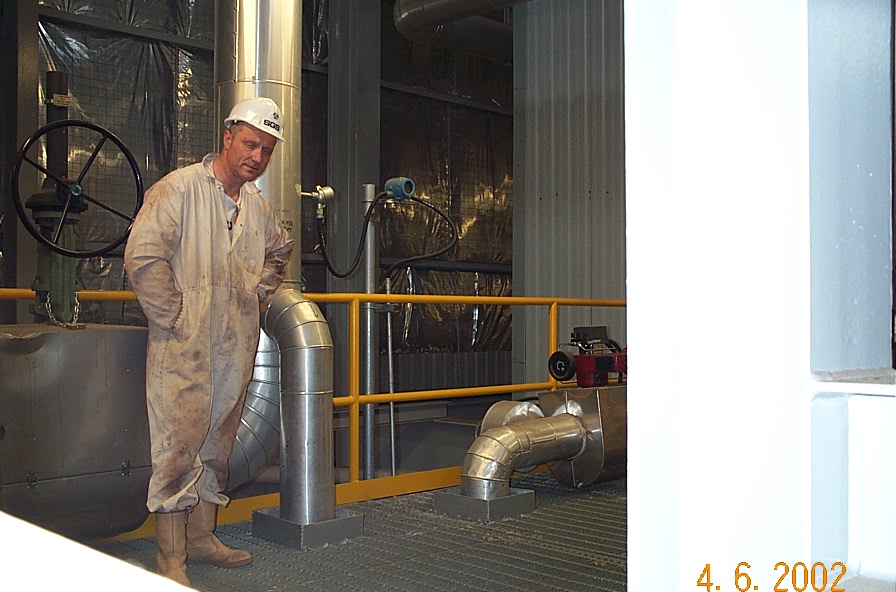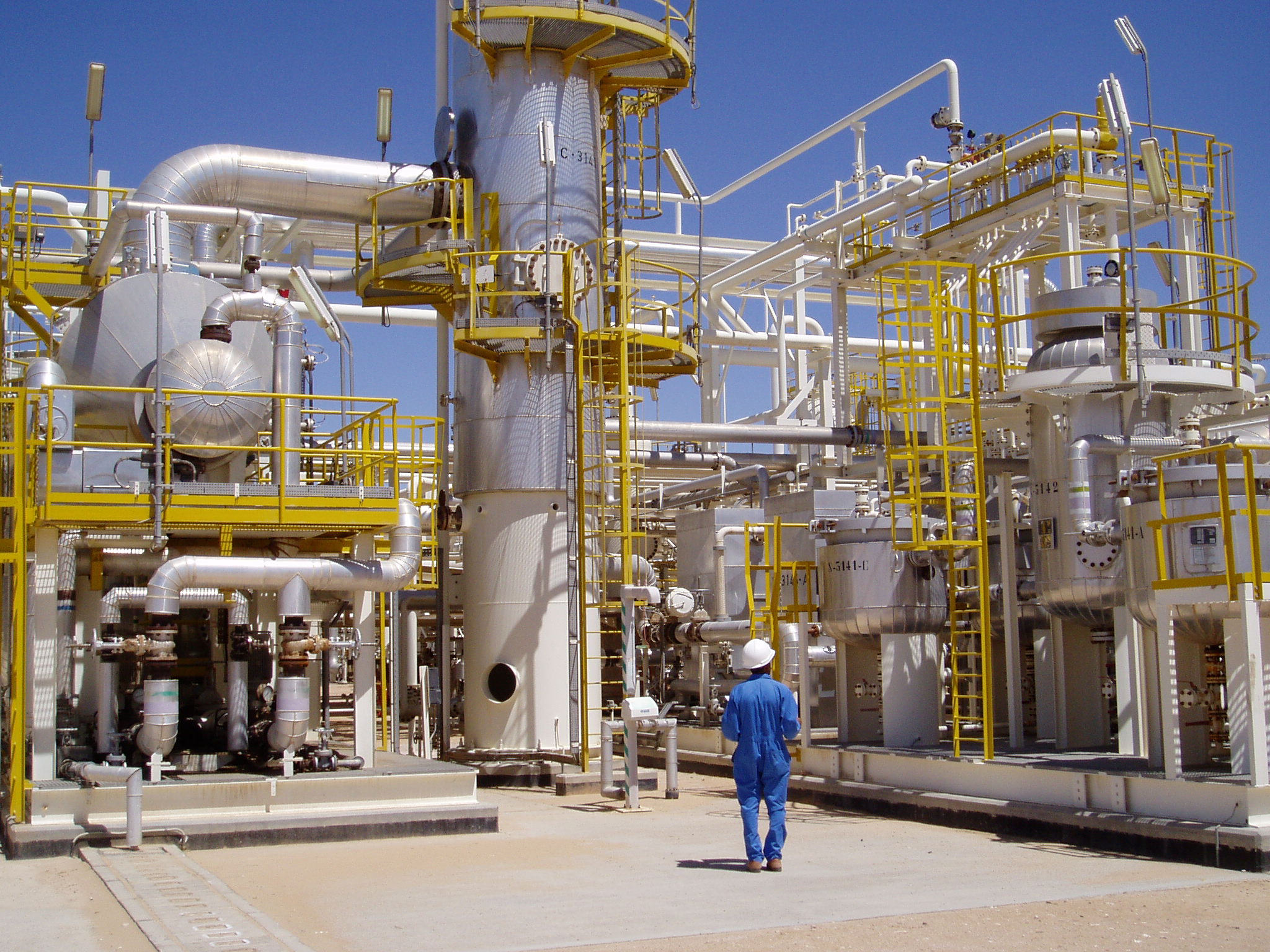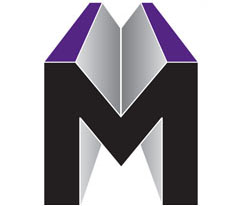IN-SERVICE INSPECTORS: WHAT DO THEY DO?
Typical job titles for in-service plant inspectors might be any of the following:
- In-service inspector
- Shutdown inspector
- Refinery inspector
- Plant inspector
- Power boiler inspector
The job
As the name suggests the job is to inspect large and complicated items of (mainly) pressure equipment during shutdown of power plant, chemical plant, refineries and other types of process plant. To do the job well it is necessary to understand how the plants work, their operating conditions, and the corrosion/damage mechanisms that influence them.
Plant shutdowns extend over several weeks or months so inspectors are effectively in a full-time role over that time. Instead of working alone as in some jobs, the site inspector is part of a team with various different people involved in stripdown, weld repairs, NDT and the evaluation of inspection findings. Plant owner/users are a technically competent, serious bunch who expect inspectors to understand the equipment, write good reports and generally know what they are doing.
 Don’t confuse the In-service plant inspection role with small-plant engineer ‘surveyors’ or ‘insurance inspectors’ who do periodic statutory inspections on smaller-scale lifting equipment, pressure equipment in garages and factories, catering equipment and suchlike. The role of the job is similar but it differs in the technical complexity of the task and the type of plant inspected. See Engineer Surveyor small plant for further details of this role.
Don’t confuse the In-service plant inspection role with small-plant engineer ‘surveyors’ or ‘insurance inspectors’ who do periodic statutory inspections on smaller-scale lifting equipment, pressure equipment in garages and factories, catering equipment and suchlike. The role of the job is similar but it differs in the technical complexity of the task and the type of plant inspected. See Engineer Surveyor small plant for further details of this role.
Skill levels for large plant inspection.
Although there is no rigid structure of inspection qualification/certification in place in many parts of the world (including Europe) employers in the Oil and Gas Industry often favour the American Petroleum Institute (API) range of inspection qualifications.
There are 8-10 main certificates (all separate qualifications) covering pressure vessels, pipework, pipelines, storage tanks, refractory linings, metallurgy, damage mechanisms and similar. They are difficult, involving training courses and 3-7 hours of exams, depending on the subject. There are also qualifications/certifications available from other bodies such as American Society of Mechanical Engineer (ASME), American Welding Society (AWS), National Association of Corrosion Engineers (NACE) and others. Overall, you will find it difficult to obtain regular shutdown inspection work on large plant without some of these certificates to demonstrate your level of technical knowledge. See our Training and Qualifications and Exam Calendars pages for details.
In the real world of in-service and shutdown inspection contracts, you will also need to demonstrate practical experience and knowledge of the plants themselves rather than just clutching a fist full of certificates and calling yourself an In-Service Inspector.
 Practical-v-academic ability?
Practical-v-academic ability?
Practical experience (and a good spread of certificates) is what shutdown employers and their inspection agencies really want. The larger ones may require some level of academic achievement, more as a screening exercise than any real need for you to use academic knowledge during inspections. Knowledge of materials, NDT and corrosion will always be useful to you, as will the ability to write good inspection reports involving these subjects. Shutdown inspection reports are much more detailed than those for periodic statutory reports produced by statutory ‘insurance’ surveyors who inspect simple air receivers and suchlike.
Are these skills transferable?
Yes they are. Once you have attained the necessary knowledge and reporting ability the skills of shutdown inspection transfer easily between plant types, industries and countries. Work always comes in batches but there is sufficient difference in shutdown timings across industries and countries to produce a constant workload throughout the year. You just have to be prepared to travel.
What’s a typical 20 year progression plan?
Many shutdown inspectors arrive at the role after experience in other jobs, so 20 years is a long time-horizon for working for a company doing shutdown inspection. By far the main progression route is for a shutdown inspector to move from serving a contract inspection company (where they may have self-employed status) to a permanent staff position working for a single plant owner (e.g. a refinery). This sounds, and is, a good move but realistically is normally only possible if you have become known by the plant owner/user over several years of working there in a contract inspector role and they have decided they like you.
Alternatively, contract shutdown inspectors stay as they are, perhaps accepting shorter and less arduous assignments as the years go by. Moving back to a plant operations, NDT or insurance inspector role would be a backward step in job freedom, conditions and income so there’s little incentive for this, and people rarely do it.
 Salary levels
Salary levels
Salaries and daily rates for onshore work are quite high, making this one of the best destinations for inspectors working in onshore industry. There can be some discontinuity in assignments but high daily rates can more than make up for this. Long working hours (14-hour days are not uncommon) and unsociable travel requirements come with the package.
For contract inspectors who eventually move over to a full time staff position with a single plant owner, the salary level can vary. Refineries generally have the highest salaries, followed by electricity utilities, prestige petrochemical/oil and gas companies. Small scale chemical company salaries can be much less attractive, particularly if they are located in post-industrial areas with high unemployment. If you want the best money, you have to be prepared to travel or relocate.
Offshore Inspectors
In-service and shutdown inspections on on-shore plant are replicated, albeit with different regulations and practices, to offshore oil and gas plant. It looks like a similar role but the working environment and practices are very different. For details of this, see our Offshore Inspection Engineer (OIE) job role page
We offer a TRIAL TECHNICAL INTERVIEW
If you want to check your knowledge for a specific job role in the integrity industry then try our trial technical interview. Its purpose is to test you on the technical aspects of the job you are thinking of applying for. There’s no time limit on it but expect it to last at least 20 minutes. After the discussion we’ll give you honest feedback on how you did. Just let us know the type of position you are going for; we’ll do the rest and respond with at time slot for you to call us.
There’s no charge, but we will expect you to call us at the allocated time and be ready to answer technical questions.
Remember your trial interview is on a purely technical subjects. We are not interested in you personality traits, do-gooding activities or any wonderful extra-curricular interests you may have.







